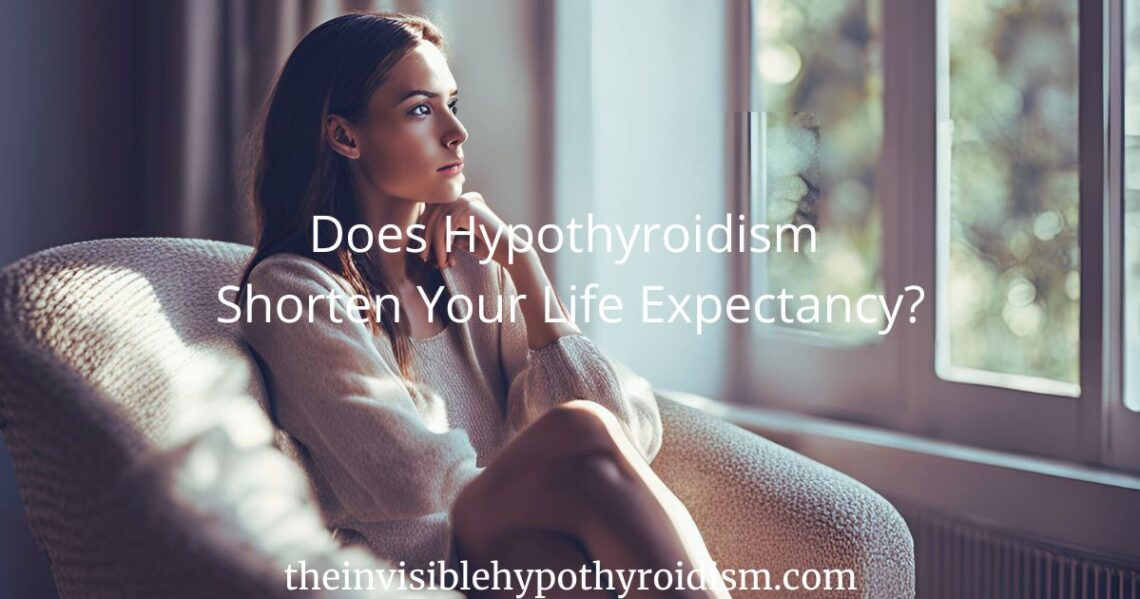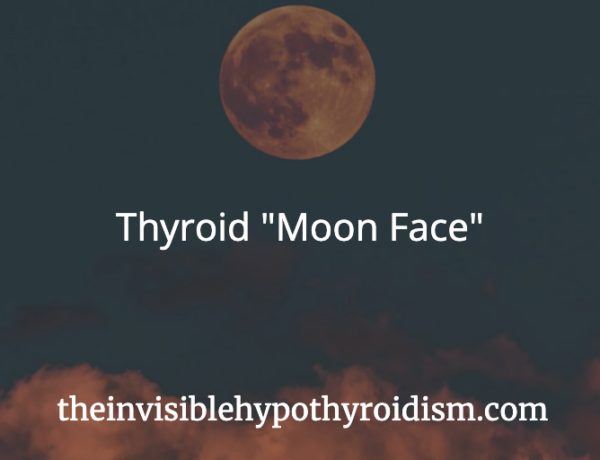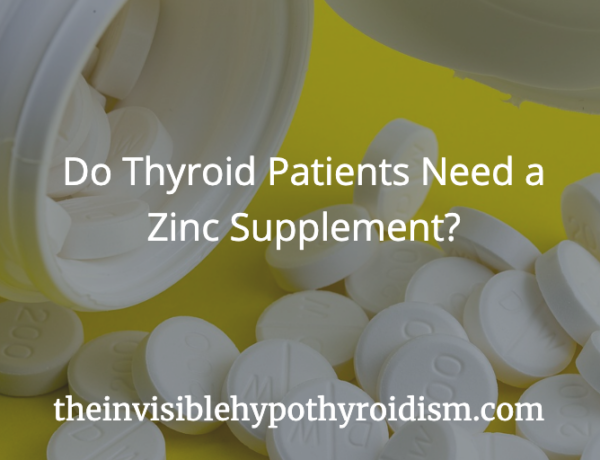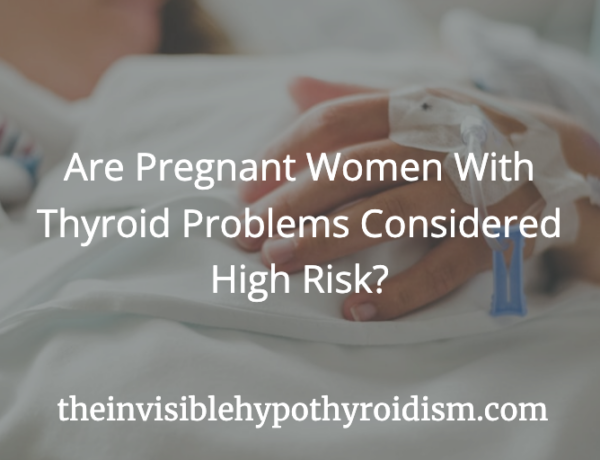Hypothyroidism, also called an underactive thyroid, is a condition where the thyroid gland (a butterfly-shaped gland in the neck) does not create enough thyroid hormone.
Does having hypothyroidism shorten your life expectancy?

The five hormones a healthy thyroid produces are: T1, T2, T3, T4 and Calcitonin. The most important are T3 and T4, with T3 being the most active.
What Are Thyroid Hormones Used For?
Thyroid hormones are needed for every process, every cell and every function within the body, so when they go wrong, i.e. are too low, a lot of other stuff can go wrong too.
Symptoms of hypothyroidism include:
- Tiredness or fatigue
- Poor stamina
- Feeling weak
- The need to nap more than others
- Long recovery period after activity
- Arms feeling like dead weights after activity, limb numbness
- Inability to exercise, or withstand certain exercises
- Diagnosis of Chronic Fatigue Syndrome
- Sensitivity to cold or heat
- Weight gain and inability to lose weight
- Unintentional weight loss (less common)
- Constipation
- Depression
- Anxiety
- Feeling more emotional than usual / mental health struggles
- Slow movements, speech and thoughts
- Brain fog, confusion and memory problems
- Itchy and sore scalp. Dry, tight skin. Eczema.
- Muscle aches, pains, cramps and weakness
- Poor appetite
- Brittle hair and nails
- Hair loss
- Hair not retaining hair dye
- Loss of libido (no sex drive)
- Numbness in limbs
- Irregular periods or heavy periods, any period complaints
- Fertility issues
- Migraines and headaches
- Hoarse voice
- A puffy-looking face, “Moon Face”
- Thinned or partly missing eyebrows
- A slow heart rate or one that increases more so than a healthy person’s after physical activity (e.g. after walking up the stairs or emptying the washing machine)
- Hearing loss, tinnitus
- Anaemia
- Poor circulation
- High or rising cholesterol
- Acid reflux
- Poor levels of iron, B12, Vitamin D etc.
- IBS / gut issues
- Easy bruising
- Swollen legs that impede walking
- Frequent shin splints
- Difficulty standing on feet for long
With this long list of symptoms, it is easy to see why so many people have reached out to ask me whether our life expectancy can be impacted by thyroid issues. As with many of the risks associated with thyroid conditions and thyroid medication, they are usually tied to the management of the thyroid condition.
Is Life Expectancy Impacted?
As long as you are on the right type and dose of thyroid hormone replacement medication for you, as indicated by your thyroid blood test results, then your life expectancy should not be impacted.
If your dose is too low, and your thyroid hormone levels are not optimised, then this may cause ongoing symptoms and issues (such as those listed above) and could impact your life span. However, the same is for thyroid hormone levels that are too high and may indicate over treatment with thyroid medication.
If you have a diagnosis of hypothyroidism and have been told you should take thyroid hormone replacement medication but do not, or do not take it routinely, then there is an increase in risks of:
- Abnormal blood pressure
- An increased risk of heart disease
- An increased risk of infection
- Osteoporosis
- Weight gain that is almost impossible, if not completely impossible, to shift
- Depression and anxiety
- Hair loss (on the head and eyebrows) and an itchy and sore scalp
- Infertility, miscarriage, stillbirth
- Irregular periods or periods that are too heavy or too light
- Extreme fatigue and an inability to handle exercise
- Muscle weakness
- Joint and muscle aches and pains throughout the body, though most commonly in the legs
- Numbness in limbs
- A long recovery period after exercise
- Feeling cold a lot of the time, including cold hands and feet
- Brain function issues such as brain fog, memory issues, degeneration and confusion
- High cholesterol
- Constipation
- Acid reflux
Which may also impact your life expectancy.
The most serious of all, myxoedema coma, can be fatal. This is a loss of brain function as a result of longstanding, severely low level of thyroid hormones. It is considered a life-threatening complication of hypothyroidism that develops over time.
Some Studies Link Hypothyroidism to an Increased Lifespan
The Rotterdam Study, published in the Journal of the American Medical Association, was a population-based, prospective cohort study, looked to investigate thyroid function and overall life expectancy and life expectancy with and without heart disease. [1]
This study surprisingly concluded that people with low thyroid function (hypothyroidism) live up to 3.5 years longer overall, and that people with low thyroid function may live up to 3.1 years longer without heart disease than people with high or normal thyroid function. Unfortunately, it did not test Free T3 levels, which, as we know are important, instead focusing on TSH and Free T4 levels in participants. The study also focused mainly on white people who were over the age of 45, which excludes a lot of other populations. However, the study still shows that there is a good chance hypothyroidism does not reduce life expectancy as long as it is well-managed.
Conclusion
If you have hypothyroidism and have your levels checked regularly (ideally at least twice a year) and have your dose monitored to keep TSH, Free T3 and Free T4 levels optimised, taking your medication consistently, your lifespan is unlikely to be impacted and, in fact, may even be increased compared to those without thyroid disease.
On the other hand, if you are not on the right dosage of thyroid medication or do not take it when you should, you are likely to experience a lot of symptoms and health issues associated with this, which are likely to increase your chances of a reduced life expectancy.
It’s worth knowing that you can order full thyroid panels yourself from online laboratories. You can use a UK lab here and a US lab here.
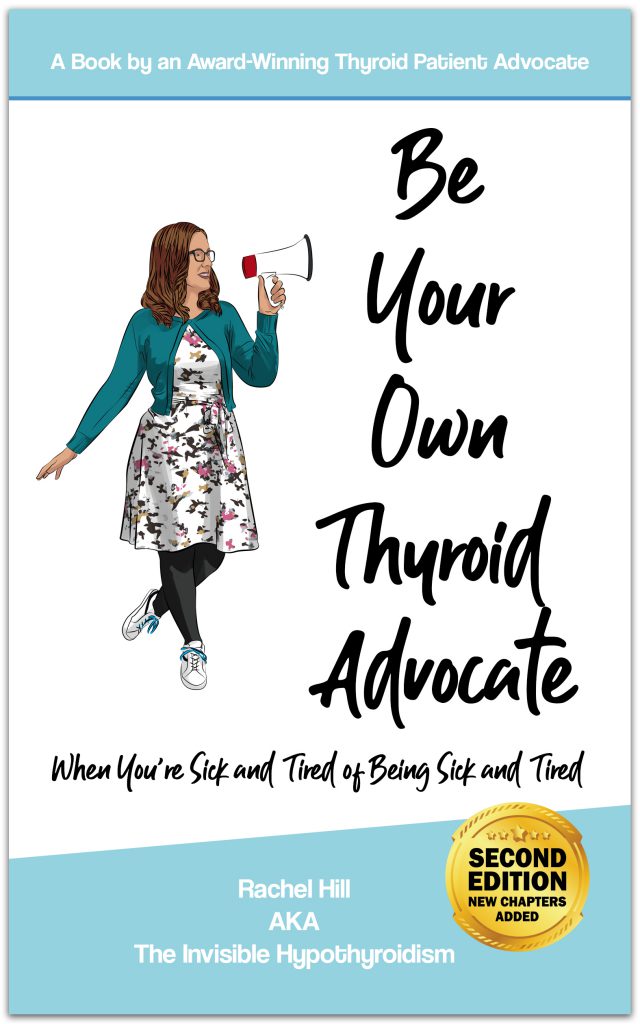
See also: Be Your Own Thyroid Advocate
Be Your Own Thyroid Advocate, the must-read thyroid patient book that covers why you still feel unwell on thyroid medication and what you can do about it.
References:
[1] https://jamanetwork.com/journals/jamainternalmedicine/fullarticle/2653451#:~:text=Conclusions-,At%20the%20age%20of%2050%20years%2C%20participants%20with%20low%2Dnormal,with%20high%2Dnormal%20thyroid%20function.

